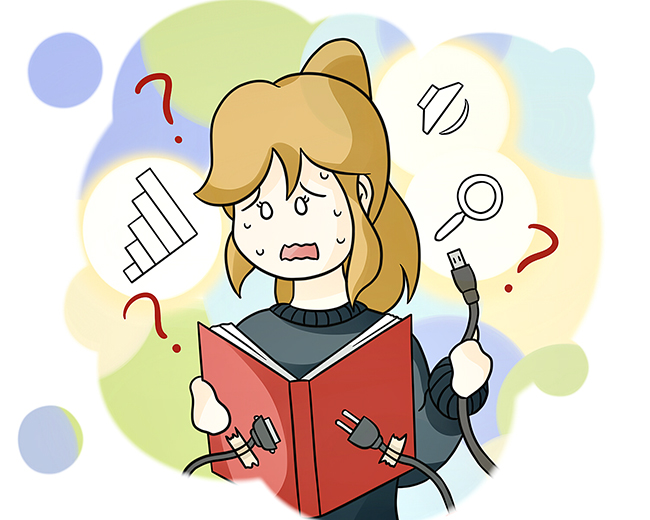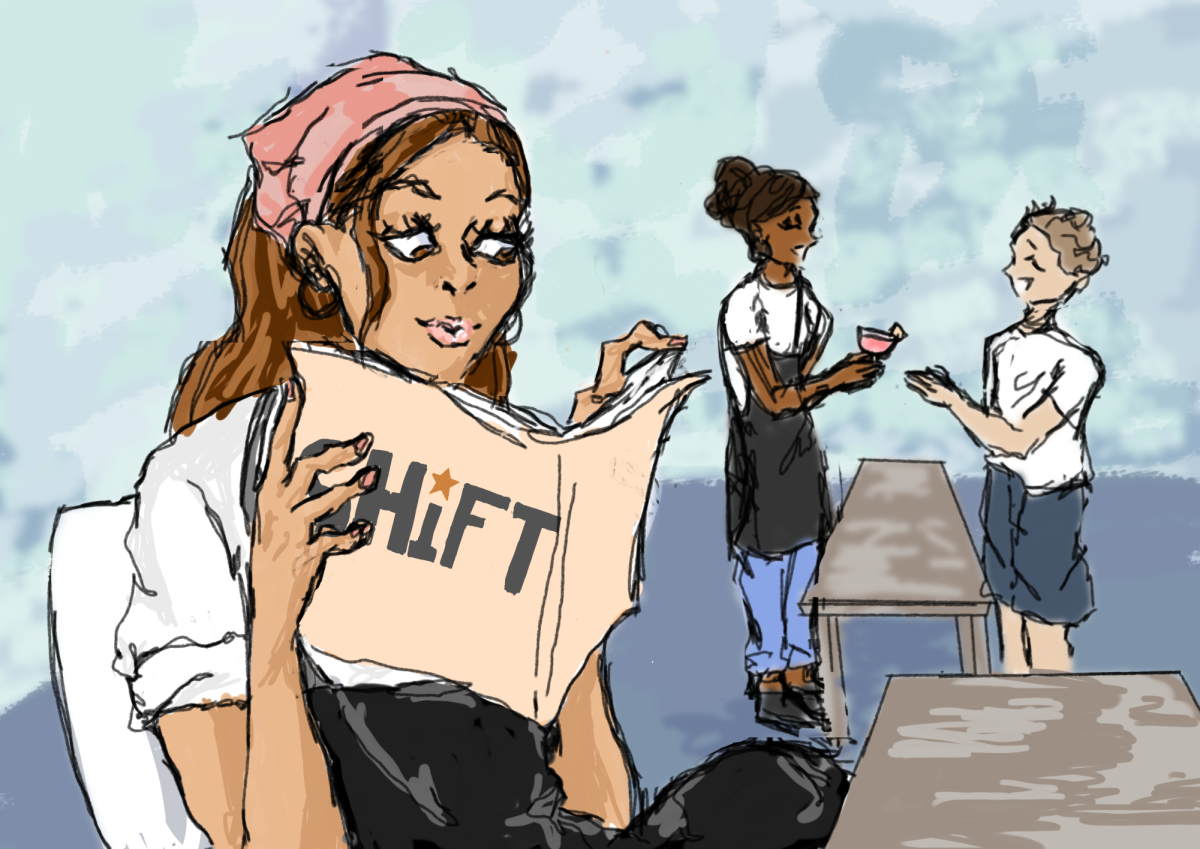Working on screens may not be killing students’ brain cells, but it’s definitely affecting the way they process information.
Philosopher of communication theory Marshall McLuhan famously proposed that all technology is an extension of our bodies — he said wheels are more efficient versions of feet for long-distance travel, and writing is a more reliable version of memory for record-keeping. For instance, some people keep an agenda instead of memorizing their monthly to-do list. Similarly, researchers in cognitive science have recognized the role external technologies play in enhancing the brain’s performance.
Scientists Andy Clark and David Chalmers published a paper in 1998 describing peoples’ tendency to use their environment to perform work that would otherwise be difficult, such as using a pen and paper to perform complex mathematical equations. However, just as people shape the tools they use to complete certain tasks, these tools modify their cognitive abilities.
In the 1970s, linguists Jack Goody and Walter Ong argued that a culture’s scope of knowledge increased with the ability to produce written records — but they were wrong. According to Anthony Webster, UT associate professor of anthropology, further research shows cultures around the world developed tricks to commit lengthy pieces of oral culture to memory, such as putting these stories to song. People engaged in literary practices, though, have impaired capacities for memorization, because writing has made it unnecessary.
“Literacy may have had an impact on the amount of information that we memorize,” Webster said. “But I still memorize lines of poems, and people still memorize the lyrics to songs and quoted dialogue from movies.”
In “How We Think: Digital Media and Contemporary Technogenesis,” N. Katherine Hayles uses the established term “technogenesis” to refer to the coevolution of people and technology. She includes several examples of ways in which digital media has produced changes in peoples’ cognitive processes. For example, just as people rely on writing to remember the correct spellings of words, Hayles identifies what information they retrieve from their mobile devices instead of their memories, such as telephone numbers.
The amount and the accessibility of online reading sources has also produced a new kind of nonlinear reading. Hyper reading is a screen-based and computer-assisted kind of reading that allows readers to browse and select small pieces of information from large amount of texts. According to Hayles, hyper reading is a strategic response to today’s information-intensive environment. It employs strategies such as skimming and scanning texts, instead of reading them whole.
A study in 2006 by Jakob Nielsen found that people usually read web pages in an “F” pattern. A person reads the first two lines of text across the page, but as their eyes travel down the screen, the scanned length gets smaller. By the time readers reach the bottom of the page, the eye is traveling in a vertical line along the text’s left margin.
Studies have shown that these new, digital reading patterns can repurpose neural circuits in the brain. Gary Small, director of UCLA’s Memory and Aging Research Center, performed a series of experiments on digitally naïve subjects. Their brain activity showed changes after being exposed to a web search exercise, and researchers attributed these differences to new, neural pathways encouraged by web searching.
The library system at UT has become increasingly attune to student’s digital habits and needs, investing in the collection of research journals within the digital realm and digitizing much of its physical collection. UT Libraries communications officer Travis Willmann said, while physical resources have maintained a consistent check-out rate over the past few years, access to online resources has notably increased.
Susan M. Macicak, UT Libraries collection development officer, said recent changes in the technological landscape have affected the role that the library system plays in students’ academic lives.
“There has been a shift in emphases from the library’s traditional role of collecting and preserving the products of scholarship to embedding expertise, resources and services in the process of scholarship throughout the research life cycle,” she said.
In her book, Hayles confesses that when her computer goes down or her Internet connection fails, she feels lost and disoriented. Most people have developed similar reliance on today’s digital technology. The effects of digital media on human cognitive processes, for better or for worse, will continue to develop as people interact with technology.





















